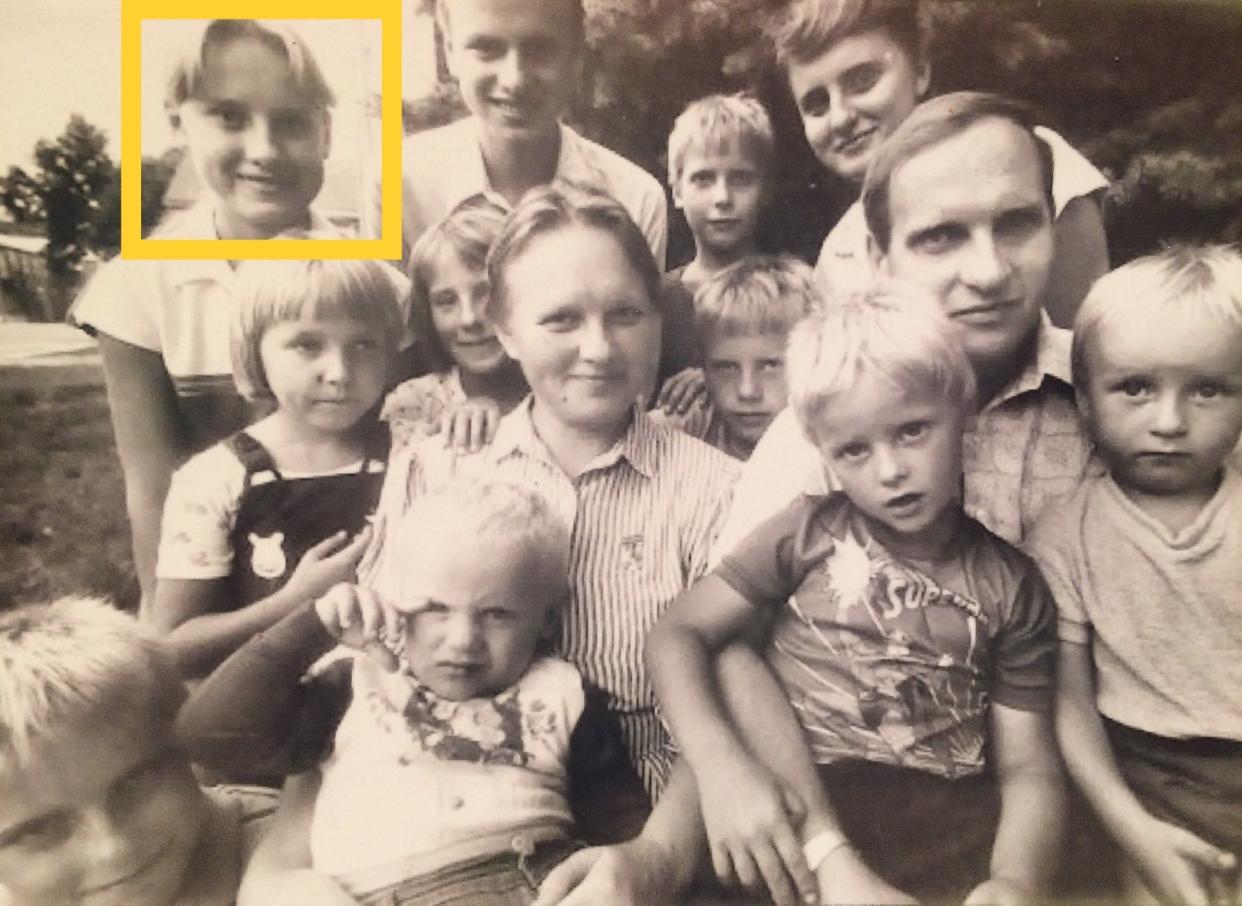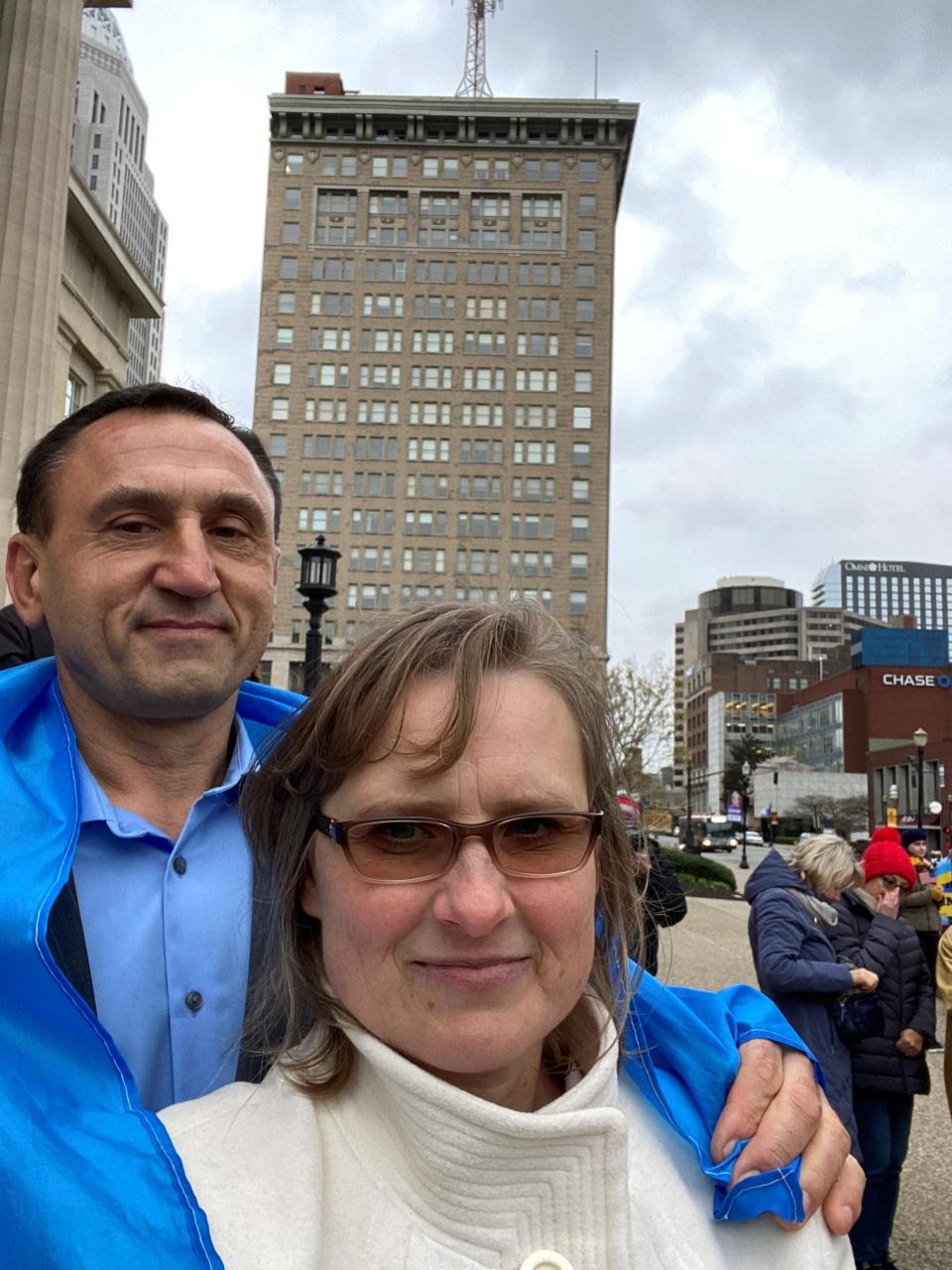I am a Ukrainian refugee. Thanks to acts of generosity, my family found belonging in America.

Being a 13-year-old girl is hard, no matter where you come from or live. But being a 13-year-old Ukrainian refugee in new country – where you don’t speak the language or understand the cultural norms – can make you shut down and say, “forget this.” That could have been my life here after I fled the Soviet Union with my family in 1989. Instead, the hospitality I received from my church, and from one family in particular, allowed me to grow up feeling like I belonged in America.
Belonging, of course, in a fundamental human need. That feeling of connectedness and inclusion is particularly important for the successful integration of immigrants like myself, who often arrive in the U.S. feeling like outsiders. A new report on belonging published by the American Immigration Council, found that the degree to which a person belongs can impact their health, socioeconomic success and overall life satisfaction. As the report’s authors write, “In today’s polarized, socially segregated and increasingly diverse American, investments in belonging are more urgent that ever.”
We came to America as religious refugees
My family did not belong in our native Lutske, Ukraine. As devout Christians, we had to hide our faith from the Soviet authorities or risk being fined, arrested or worse. So, when a Pittsburgh church sponsored resettlement for our family of 13, we left everything behind and came to America as religious refugees. It was incredibly difficult, but the church was a lifesaver, helping my parents find work and providing our family with a home and car. They also did something that changed my life: paired me and each of my siblings with sponsor families from the congregation to help us navigate this new world.
My sponsor family consisted of Brett, a plumber, Janet, a healthcare worker and their two young children. When we met, they told me to think of them as an aunt and an uncle, and we quickly settled into an easy routine. In addition to seeing them every week at church, they would pick me up a few times each month and take me to the dentist, school events or just to celebrate a birthday or holiday.
Immigrating is difficult. Cubans like me are grateful to Louisville for opening itself to us.
Janet understood how difficult life could be for a teenager like myself—especially one accustomed to Soviet-era scarcity and conformity. Some of my fondest memories were shopping trips, where she introduced me to clothes in colors and styles I never could have imagined. On one of our first excursions, Janet handed me a dress and took me to a fitting room, where she explained the process of trying on something before you buy it. Back in the Soviet Union, girls were only able to choose between three dresses and two sweaters, so having so many styles and color options was overwhelming.
I could have easily fallen through the cracks as a refugee
Going to school the following day in my American clothes did so much to help me feel like I belonged because I looked the part. Janet and Brett also gave me my first job—babysitting their kids. I’d never had my own money, and our family finances were tight, so being able to work and save for things I wanted, like a new shirt and, later, college, gave me confidence in myself and my abilities.

I always looked forward to seeing Janet, Brett and their kids. In my early months here, I often felt like a kite, just kind of floating around without any direction or purpose. But Janet and Brett invested time and patience in getting to know me and smoothing my way. Until I learned English, they’d communicate with me by drawing pictures. They attended meetings with my teachers to advocate for my needs. They even taught me about sales tax when I went to pay for something that cost a dollar and was shocked to be charged $1.06. I could have so easily fallen through the cracks. Instead, they helped me build a life where I’ve thrived.
From refugee to a full, connected life in America
In 1994, I married a fellow Ukrainian refugee I met through church. Janet and Brett were at the wedding. The following year, they came to our home to meet our first baby. It’s now been a while since I’ve seen them. In 1996, our young family moved to Kentucky, where we run an autobody shop, started a real estate business and built careers as real estate agents. But their influence runs through so many parts of my life. My story is proof that acts of generosity and empathy can change lives. It’s like the belonging study predicted: Janet and Brett’s efforts to support me and help me feel included allowed me to build an independent, fulfilling and connected life in America. If that’s possible for me, I believe it is for all newcomers to this country.
Looking for opportunities: Why we should appreciate the contributions of undocumented immigrants in Louisville
I believe belonging is the solution to our divided nation. And it starts with a willingness to reach out to those who need us. Already more than 200,000 Americans have applied to sponsor Ukrainian refugees fleeing the Russian invasion. Here in Lexington, our church has sent money and supplies overseas and sponsored the resettlement of 100 Ukrainian families in the last year. But Congress has fallen short by failing to give these refugees long term protections. For them, belonging also requires a pathway to permanent residency.
I am so grateful to Brett, Janet and my Christian community in Pittsburgh and Lexington for making me feel welcomed and included here in America. Because of them, I know I belong. I also know that anyone, from any background can help their neighbor feel welcome. Reach out to that stranger who might be struggling, and you too could change a life.
Natalia Pidgorodetska is a real estate agent in Mt. Sterling and member of the Living Water Community church.
This article originally appeared on Louisville Courier Journal: I'm a Ukrainian refugee. Congress must do more for others like me

